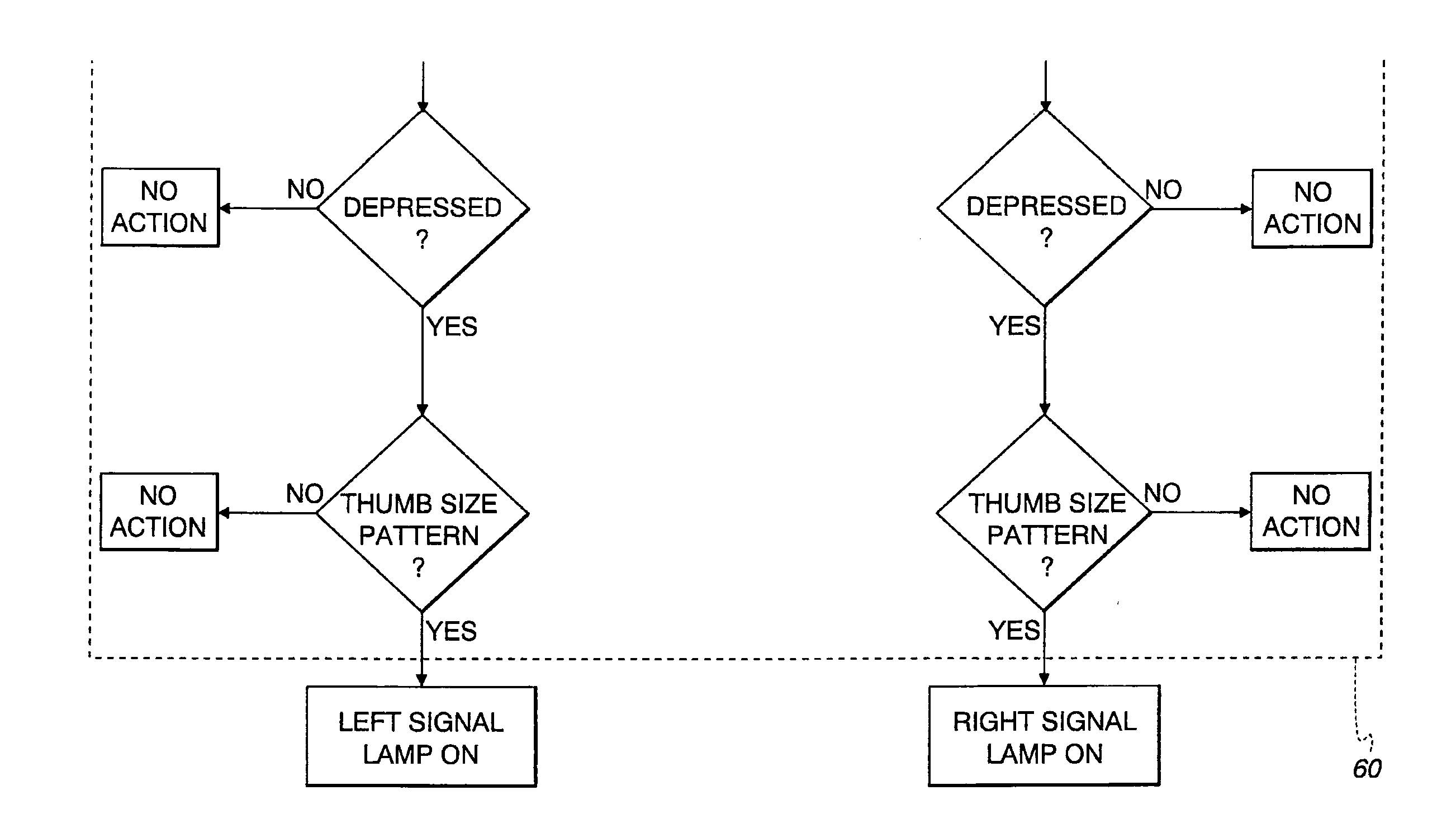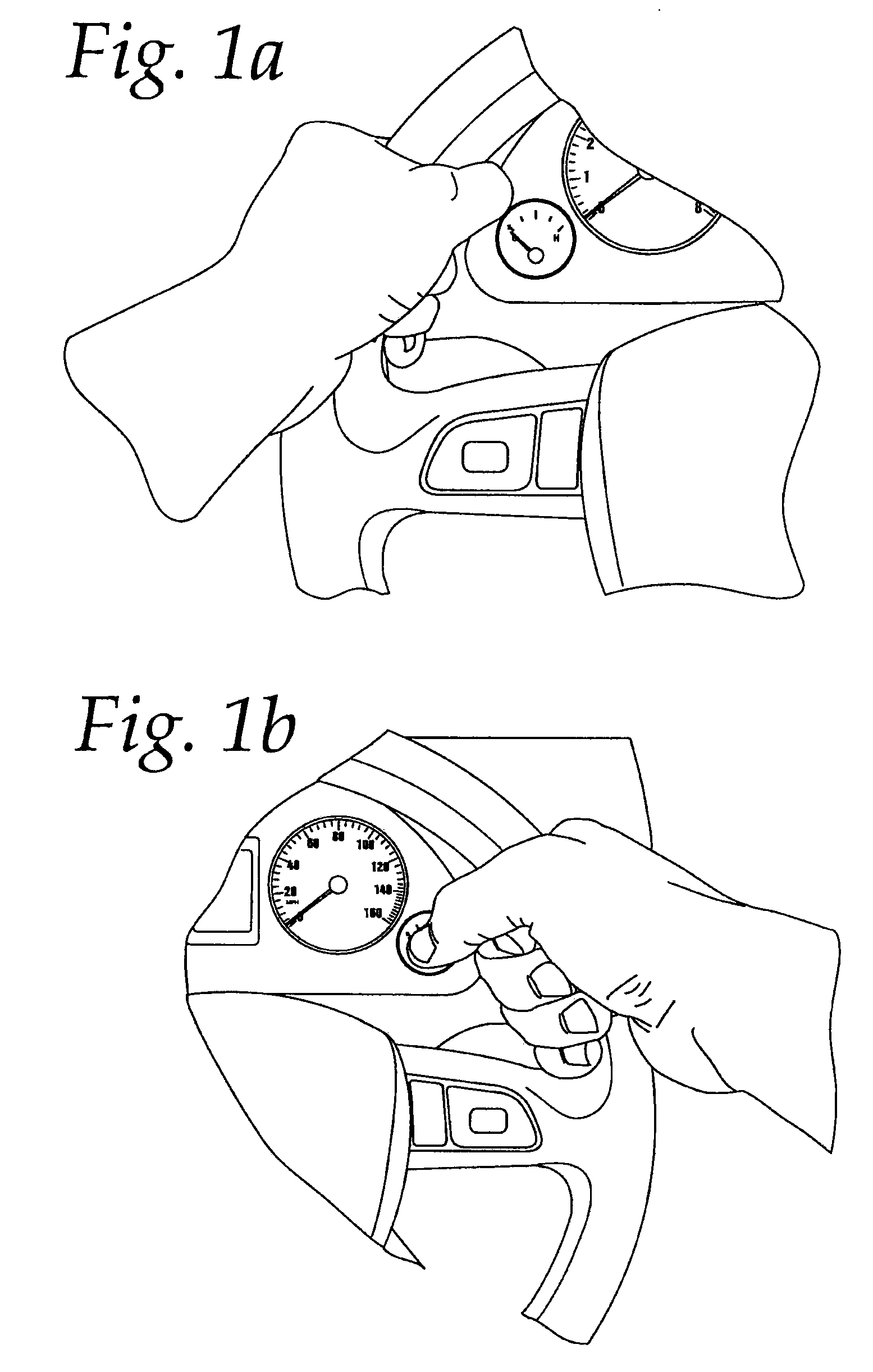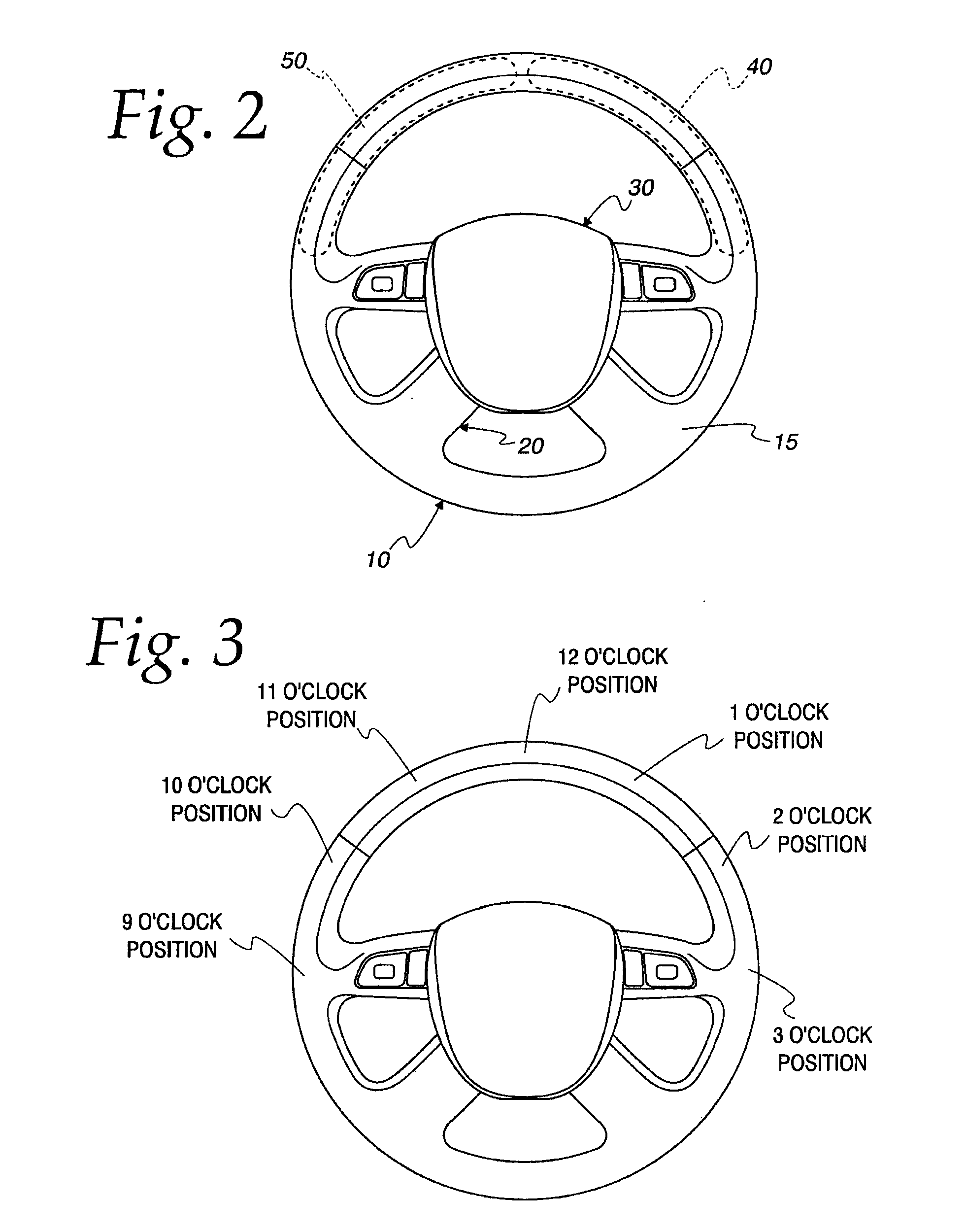Integrated vehicle turn signal system and apparatus
a turn signal and integrated technology, applied in the direction of optical signalling, signalling/lighting devices, transportation and packaging, etc., can solve the problems of signal lights turning off prematurely, failure of turn signals to engage, and problems that have existed
- Summary
- Abstract
- Description
- Claims
- Application Information
AI Technical Summary
Benefits of technology
Problems solved by technology
Method used
Image
Examples
Embodiment Construction
[0033]It is generally desirable, if not advisable, for a driver to grip a steering wheel of a motor vehicle in a four-fingered grip with the fingers of the hand wrapped around the rim of the steering wheel when driving the motor vehicle. The four-fingered grip is illustrated in FIGS. 1a and 1b. Such a four-fingered grip securely positions the steering wheel in a driver's hands. Embodiments of the present invention are directed towards allowing a driver to maintain a four-fingered grip on the steering wheel while operating the vehicle's turn signals.
[0034]In one embodiment, the present invention provides a system which permits the controlled operation of a motor vehicle's turn signals without a driver being required to let loose of the steering wheel. The system of this embodiment, referring now to FIG. 2, would include switches, sensors or gages, collectively actuators, integrally mounted to a steering wheel 10. As shown in FIG. 2, actuators 40, 50 may be proximal to each other, but...
PUM
 Login to View More
Login to View More Abstract
Description
Claims
Application Information
 Login to View More
Login to View More - R&D
- Intellectual Property
- Life Sciences
- Materials
- Tech Scout
- Unparalleled Data Quality
- Higher Quality Content
- 60% Fewer Hallucinations
Browse by: Latest US Patents, China's latest patents, Technical Efficacy Thesaurus, Application Domain, Technology Topic, Popular Technical Reports.
© 2025 PatSnap. All rights reserved.Legal|Privacy policy|Modern Slavery Act Transparency Statement|Sitemap|About US| Contact US: help@patsnap.com



